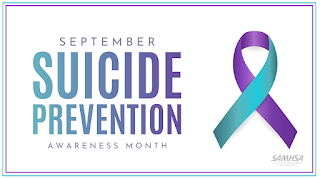Reaching Students With Emotional Disturbances
This article from the Edutopia website was written by Dr. Lori Desautels, Assistant Professor in the College of Education at Butler University. Dr. Desautels provides four strategies to help educators make connections with those students who may be dealing with emotional disturbances. She notes that "Students who struggle with emotional disturbances are some of our most vulnerable, but when we can create predictable and consistent supports for them, their inner resilience can shine."
The first strategy includes the use of Brain-Based Learning Centers where student can go to calm down, if needed. We love that this method involves teaching students about their brains, which increase self-awareness and self-regulation. Dr. Desautels suggests an “amygdala first aid station,” a “hippocampus area,” and a “prefrontal cortex area.”
Personalized Check-In Notes are the second strategy, which involves quick and simple personalized communication throughout the day. Dr. Desautels suggests that educators "share notes, small goals, affirmations, and requests to maintain individualized consistent connections" with students. For non-readers or English Language Learners, stickers, drawing or simple smiley-faces may be an option.
Structured Emotional Support through the use of the “2x10 Strategy” is next on the list. We've posted about this strategy before here. The research is impressive; not only was there an 85 percent improvement in that one student's behavior, but the the behavior of all the other students in the class also improved.
The final suggestion is the use of a Locked Journal for Safe Self-Expression. Dr. Desautels notes that, "when we write out our thoughts and feelings, we clear space in the frontal lobes for positive emotion and higher cognitive processes."
One of our favorite statements in Dr. Desautel's post is that "all behavior is communication." While students with emotional disturbances may not be able to engage in lengthy conversations about their feelings, they still tell us a lot through their actions - and they also hear a lot through our actions.
The first strategy includes the use of Brain-Based Learning Centers where student can go to calm down, if needed. We love that this method involves teaching students about their brains, which increase self-awareness and self-regulation. Dr. Desautels suggests an “amygdala first aid station,” a “hippocampus area,” and a “prefrontal cortex area.”
Personalized Check-In Notes are the second strategy, which involves quick and simple personalized communication throughout the day. Dr. Desautels suggests that educators "share notes, small goals, affirmations, and requests to maintain individualized consistent connections" with students. For non-readers or English Language Learners, stickers, drawing or simple smiley-faces may be an option.
Structured Emotional Support through the use of the “2x10 Strategy” is next on the list. We've posted about this strategy before here. The research is impressive; not only was there an 85 percent improvement in that one student's behavior, but the the behavior of all the other students in the class also improved.
The final suggestion is the use of a Locked Journal for Safe Self-Expression. Dr. Desautels notes that, "when we write out our thoughts and feelings, we clear space in the frontal lobes for positive emotion and higher cognitive processes."
One of our favorite statements in Dr. Desautel's post is that "all behavior is communication." While students with emotional disturbances may not be able to engage in lengthy conversations about their feelings, they still tell us a lot through their actions - and they also hear a lot through our actions.



This comment has been removed by a blog administrator.
ReplyDelete